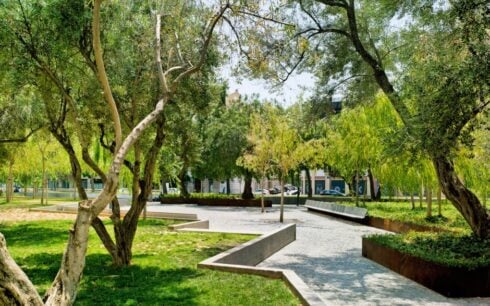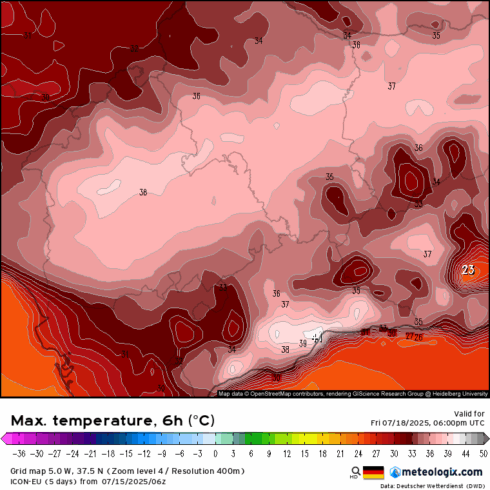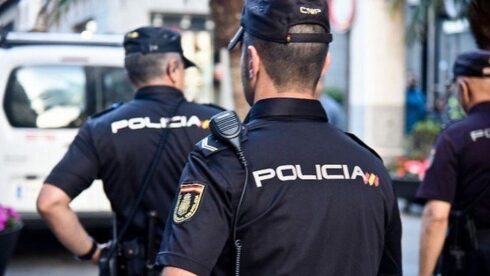FRANCO spent the first 45 years of his life getting to the top.
A ferocious ambition drove him to the top of the military profession by 1934 when he became a general de división and, shortly afterwards, Jefe del Estado Mayor.
During the Spanish Civil War, he put every effort into ensuring first of all that he would be recognized as sole military commander of the Nationalist zone. This he achieved on September 21, 1936. Within one week, he had increased his power to that of Head of State.
Within less than seven months, he had overcome all political rivals through the forced unification of parties in Salamanca in April 1937.
Thereafter, his main concern was to hold onto the power that he had secured. This involved winning the Civil War, then surviving first the Second World War and the international hostility he had earned by his closeness to the Axis.
The peak of his success came in September 1953 when the Pact of Madrid was signed with the United States.
Having achieved the agreement with Eisenhower, Franco’s anxieties about international opprobrium had come to an end. His future was secure. He remained as an active head of government only until 1957 after which point many key decisions regarding the economy were passed over to the technocrat ministers.
In his remaining 18 years of life and of power, his main concern, apart from enjoying his many hobbies, was to guarantee that his regime would live on beyond his death.
The succession – the choice of a royal successor and the constitutional mechanisms which would control his every action – became Franco’s principal preoccupation. In the event, the 18 years of effort devoted to this project came to nought. The constitutional arrangements were dismantled in the course of the year following his death.
His successor chose not to fulfil the tasks that Franco had entrusted him.
So what remains of Franco’s legacy? A few nostalgic Francoists aside, the collective feeling is a combination of ignorance, indifference and a determination that a dictatorship would never again be suffered.
In short, the so-called Pacto del Olvido, a deliberate mass rejection of revenge, underpinned the relatively bloodless transition to democracy.
False economy
This is remarkable given the many thousands of tons of newsprint dedicated by the Press and Propaganda machinery of the regime to inflating Franco’s achievements.
To be sure, there were enthusiasts of the Movimiento who happily joined in the adulation of the Caudillo (echoing Fuhrer and Il Duce, the title by which Franco was often known). Many others, essentially apolitical by instinct, passively failed to question the relentlessly repeated comparisons with the great warrior heroes and empire-builders of Spain’s past, El Cid, Carlos V, Felipe II.
After all, Franco did not rule by repression alone: he enjoyed a considerable popular support.
There were those who, for reasons of wealth, religious belief or ideological commitment, actively sympathized with the values of the Nationalist war effort between 1936 and 1939 cause in the Civil War.
Then there was the passive support of those who had been conditioned into political apathy by political repression, the controlled media and an appallingly inadequate state education system. Then, from the late 1950s onwards, there was the support of those who were simply grateful for rising living standards.
It is a measure of the success of the regime’s propagandists that even many on the left, who usually considered Franco to be a cruel and unintelligent tyrant, who gained power only through the help of Hitler and Mussolini and survived for 40 years through a combination of savage repression and luck, often accepted some of the great regime myths – that Franco successfully kept Spain out of the Second World War by deceiving Hitler or that he gave Spain years of peace and prosperity.
Similarly, the effects of the economic growth of the 1960s were claimed by his propagandists – and believed by most of the population – to be his greatest achievement.
Franco’s abilities in the economic sphere were limited in the extreme. During the Civil War and until the late 1950s, with boundless pride in his own economic competence, he clung to the fascist notion of autarkic central control, not least because the idea of a command economy fitted well with his military mentality.
After 1939, he pursued a rigidly autarkic plan for national reconstruction – an absurdity in a backward agrarian economy ravaged by the Civil War and crippled by shortages of food and raw materials.
Together with his rejection of British and American offers of credits, autarky had catastrophic effects. Franco’s policies led to incalculable hardship. Black-marketeering and corruption remained features of the Spanish economy well into the second half of the 1950s and, per capita, income did not regain the levels of 1936 until the mid-1950s.
He blamed the disastrous consequences of autarky on international malevolence.
Disillusion
After 1959, the profound transformation experienced by the Spanish economy was the consequence not of Franco’s genius but of the abandonment of the policies that he had espoused. With economic stagnation threatening the stability of his dictatorship, Franco was obliged, on the desperate advice of his technocrats, to seek salvation in accordance with the recommendations of international financial institutions.
Far from masterminding the process, Franco grudgingly acquiesced in changes he did not understand in order to remain in power.
Only in the sense that his repressive regime created stability and a docile labour force, which made Spain attractive to foreign investors, did Franco contribute to economic growth.
Franco seized upon growing material affluence as a source of political legitimation, but his regime found itself rendered obsolete by the very pace of social and economic change.
By the end of the 1960s, many in the industrial, banking and business fraternities found themselves frustrated by the Falangist syndicates’ paternalistic regulation of the labour market and by the political ostracism which kept Spain out of the EEC.
At the same time, particularly after the first energy crisis of 1974, a working class still deprived of political rights could no longer be bought off by constant increases in living standards.
A far-reaching consensus between the progressive elements of the Right and the Left was to lie at the heart of the national rejection of Franco’s plans for the post-Franco future and was to underwrite the transition to democracy.
Fearless dictator
The noteworthy lack of an abiding popular memory of the Caudillo is a measure of the growing irrelevance of an ever more infirm Franco himself during the last years of the dictatorship. Even more is it a consequence of the way Spain has developed since 1975.
Franco remains a contradictory figure who, to most young Spaniards, hardly seems to be of the same century as themselves.
The brave and impetuous soldier of Spain’s colonial wars in North Africa was only a distant precursor of the grandfather figure who surrounded himself with the trappings of royalty in the 1950s.
The difficulties of understanding are compounded by Franco’s own efforts at obfuscation. From the age of maturity, he cultivated an impenetrability aimed at ensuring that his intentions were indecipherable. His chaplain for 40 years, Father José María Bulart, made the rather ingenuously contradictory comment that “perhaps he was cold as some have said, but he never showed it. In fact, he never showed anything.”
His speeches were so labyrinthine and tortuous, sententious and pompous, as to suggest that he did not particularly want to be understood.
Nevertheless, to understand him, it is crucial not to fall into the trap of ridiculing him nor of stressing his mediocrity.
A bourgeoisie that has been challenged by working class dissent – as was the case in Spain in the 1930s as it had been in Italy and Germany in the 1920s – does not choose an incompetent as its defender.
Franco had shown himself to be a ruthless and competent soldier in Morocco. Throughout the Civil War, he revealed a remarkable capacity, rather like a good sports coach, to keep the morale of his followers at boiling point by categoric affirmations of what he called his “blind faith.”
His serenity was revealed repeatedly in his uncanny ability to ride out damaging storms, at the most difficult moments of international isolation at the end of the Second World War and during the Cold War, sitting tight when his advisors were convinced the end was in sight.
His followers accepted Franco’s ferocious discipline not only out of fear but also because, in Africa, he had established a reputation for being extremely courageous.
There is no record of Franco ever having manifested fear.
His coolness under fire and his practical competence as a field officer won him a series of rapid promotions which made him successively in 1916 the youngest captain, in 1917 the youngest major and in 1926 the youngest general in Europe.
Behind his bravery as a young soldier, there was an icy sang froid that would carry him through the darkest days of the Civil War, the World War and the Cold War and would permit him to preside over a machinery of terror.
He showed only indifference in the face of complaints about the atrocities being committed in the areas under his control during the Civil War. The scale of the repression in that conflict and into the 1940s surprised (leading Italian fascists) Ciano and Farinacci and even Himmler.
His cruelty was facilitated by his lack of imagination. In power, for instance, he could not conceive of the discontent of others as having objective justification but saw them unilaterally as the work of foreign communist agitators and sinister freemasons.
Such detachment from reality gave Franco a confidence not undermined by self-criticism. The conviction that he was always right gave him the flexibility endlessly to tack to changing domestic and international circumstances.
Franco forgotten
There is, ironically, one feature of Franco’s political persona that accounts both for his success in gaining and keeping power and also for the fact he has been so quickly and easily forgotten. That is the fact that he was not restricted by any far-reaching ideological vision in the way Hitler and Mussolini were.
Instead, he had an idealised notion of a harmonious society in which opposition and subversion would not exist. It would be like a united family ruled over by a strong, all-seeing father. In that regard he was making good the deficiencies of his own childhood, which took place at precisely the time when a Spain, as bereft of strong leadership as the young Franco was of a stable family life, was being humiliated in international terms.
To achieve his notion of a harmonious family, Franco was not averse to killing, imprisoning and exiling half of Spain.
In so far as he had recognizable political ideas at all, they were extremely narrow, often negative and derived from his military background.
Like most army officers of his generation, his over-riding hatreds were separatism, communism and freemasonry. Irrespective of the human cost, he was determined to eradicate all three from Spain along with socialism and liberalism. That came to mean the annihilation of the legacies of the enlightenment, of the French revolution and of the industrial revolution in order to return to the glories of medieval Spain.
His most dearly held objectives were altogether more abstract, more spiritual than ideological in the modern sense.
He wanted, by bloodshed, to ‘redeem’ the Spanish people of the burden of the centuries of failure since Felipe II, when Spain’s greatness began to crumble.
It is hardly surprising that 20 years after his death, his memory has little or nothing to say to the youth of Spain.
Paul Preston is Professor of Contemporary Spanish Studies at the London School of Economics. He is also the author of several books on Spanish history, including Franco: A Biography (Fontana Press) and The Spanish Civil War (WW Norton and Co Ltd)
Click here to read more News from The Olive Press.









The legacy of Franco’s authoritarian corporatism strongly persists in Spanish culture even though Spanish youth know little of the man who promoted it. (Similarly, many young people don’t know exactly who the Beatles were, but no one denies the profound effect that their media had on popular culture.)
Franco’s Falangist categories of patrimony, elitism, corporatism and authoritarianism are deeply embedded in political organization and Spanish world view, especially, in rural municipal governance where ancestral habits still strongly affect peoples’ lives.
One cannot begin to understand contemporary Spain without grasping how fueros, the chartered political/economic/cultural entities that have been used by elites to control Spain, since at least medieval times, remain the fundamental category of political power – rather than individual political agency, as one would expect to be the case in a European Union, representative democracy, with due process. Spain’s institutions haven’t yet evolved that far.
The most obvious example of the Francoist legacy is the fact that municipal politicians still are able to use their office as a base to conduct private sector business, such as unwanted construction projects and habitat destruction, which only benefit a closed circle of colluding business interests. These colluding interéses are fueros, to use the historic terms. Environmental protection is weak precisely because it is not yet organized into a powerful corporate entity that brings in votes. By way of contrast the livestock association (Mesta and others), tourism federations and construction federations are older and stronger, with charters going back decades. They do bring in money and votes. Current politics are about sector, or fuero, interests and how to balance them in the interests of regional elites rather than for the benefit of ordinary, individual citizens.
Spanish youth’s disillusionment with politics is a clear manifestation of the persistence of old culture. The young don’t vote because they know that elitist politicians, regardless of ideology or party, make policy behind the scenes. They know that the concept of individual political agency has not reached positive, political mass. That is the legacy of Franco.
Not even Franco could stand up to the interéses: that is what led to the 1957-1958 opening. Youth won’t have memories of his biography, but they continue to suffer the effects of his policies.
Understanding just what the Pact of Forgetting wanted people to forget, and the young people never to know would be beneficial for all so that the transition to democracy can continue to develop its democratic institutions at the local level.